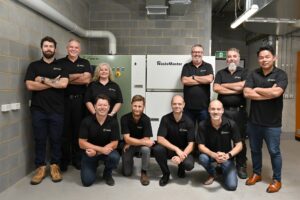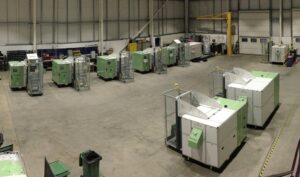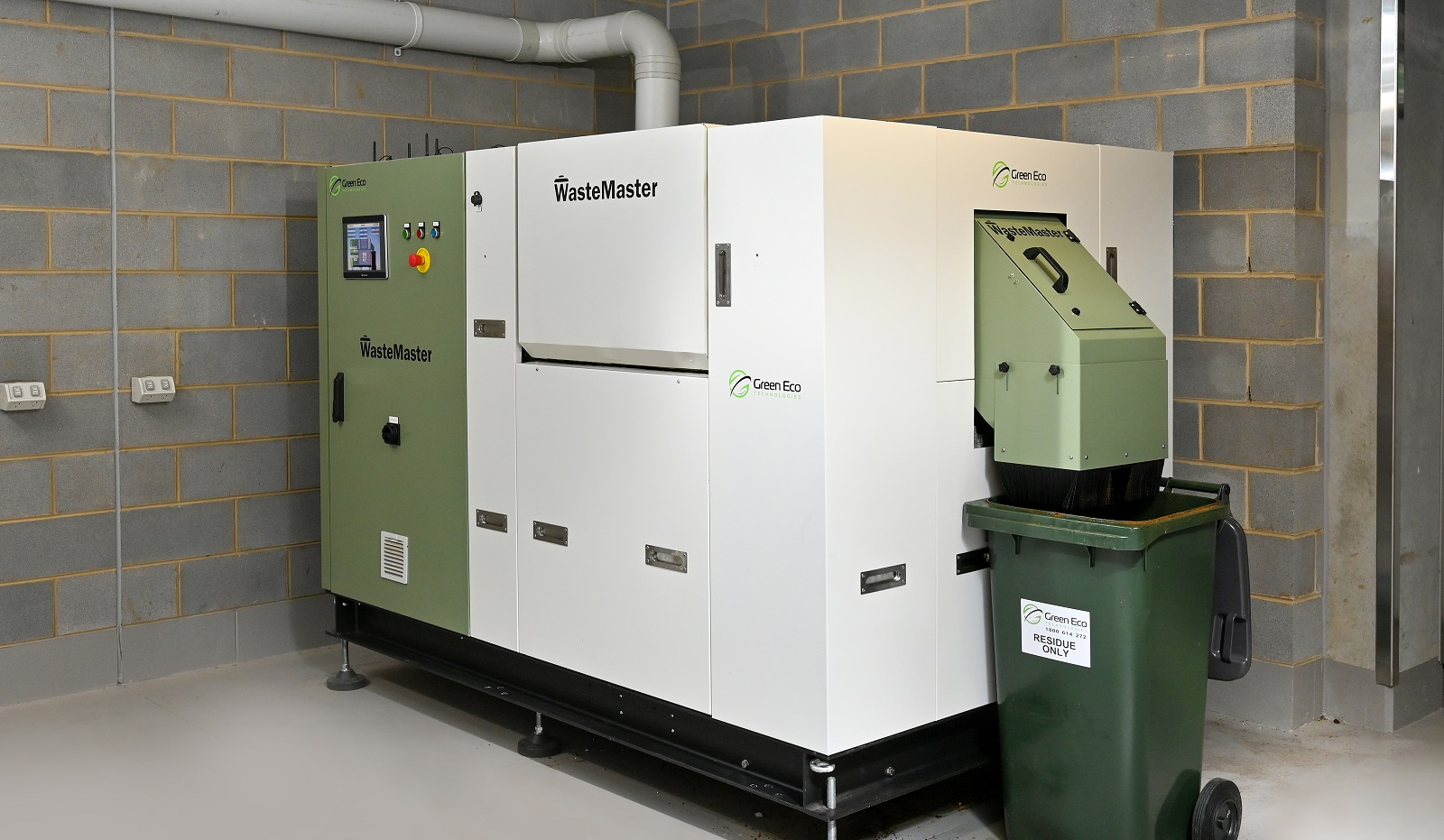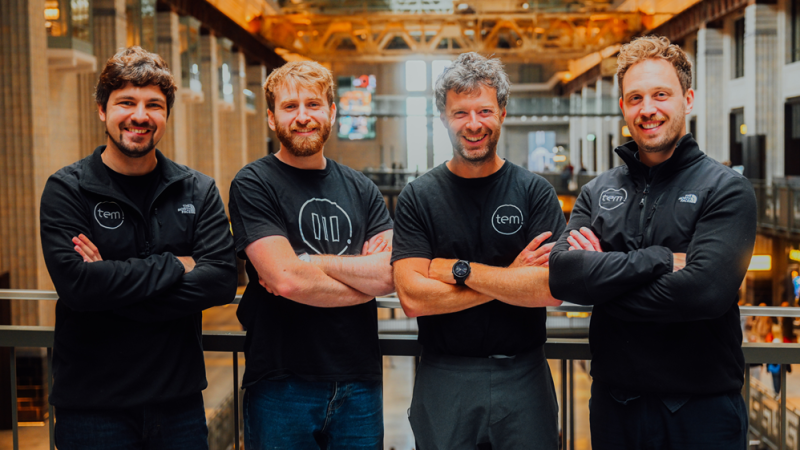According to the Food and Agriculture Organisation (FAO) of the United Nations, one third of all food produced globally for human consumption – 1.3 billion tonnes – is wasted annually, causing an estimated 14% of the world’s greenhouse gas emissions. The methane gas emissions generated by rotting food waste in landfill are extremely harmful to our planet – in fact in excess of 25 times more damaging than carbon dioxide (CO2) as a greenhouse gas.
So much for the background against which an Australian entrepreneur, Gordon Hoen, established Green Eco Technologies (GET) in 2017, wishing to find, with the right team, the right technology to divert food and organic waste from landfill. That technology is now available.
WasteMaster
“We have developed an innovative system that we call the WasteMaster to provide organisations with the on-site capability to manage conversion and re-purposing of food waste as reusable resources while reducing costs and greenhouse gas emissions. It offers a tangible opportunity to take part in the circular economy and combat climate change,” says CEO Rick Woods.

“What’s different about the WasteMaster is that we thought about on-site food waste management from a user’s perspective, focusing on the principles of safety, efficiency, simplicity, and measurability while retaining the intrinsic value of the food waste – and that required some clever engineering,” Rick Woods points out.
A typical size WasteMaster fits into a car parking space on site, is fully automated and built to strict safety standards to eliminate manual handling and personnel safety risks. The ‘one button set and forget’ operation means that staff are not diverted from their main activities of serving customers, but can responsibly and efficiently manage their food waste without significant changes to their back-of-house processes.
“The WasteMaster patented technology does not require dosing with enzymes or bacteria, doesn’t use water or high levels of heat, all of which contradict the principles of the WasteMaster design,” says Rick Woods. “We simply use activated oxygen to accelerate food waste decomposition to produce a pathogen-free, high-calorific, high-protein residue that looks and feels like coffee grinds.”
Awarded business
He explains that from a product development perspective, the company has expanded its portfolio from its original 400kg per day unit into an 800kg per day model and will be hitting the market with a 200kg per day unit in the coming months in response to market demand. “We are also in the early development stages of a 5,000kg per day unit for the same reasons.”
The company has also expanded globally and is now present in the UK, Spain, Chile, Australia, the Middle East and most recently in Singapore where the product has been well received by private and public organisations alike.
“We are gaining recognition from well-known organisations. We have placed multiple WasteMaster systems with the National Health Service in the UK, the Westfield group, Accor hotels and Frasers Property Group,” says Mr Woods.
The company also won a number of awards in 2022 which confirms the sustainability and innovative credentials of the business. “In 2022, we won the Australian Export Award for small business, the Middle East Recycling Award for Technology Innovation of the Year and in conjunction with JA resorts, the Best Food Waste Management Project,” says Rick Woods, who himself won the CEO of the Year 2022 Award for Melbourne, Australia by CEO Monthly.
“However, what is most important, we have diverted more than 6,000 tonnes of food waste from landfill, which equates to taking almost 8,000 vehicles off the road,” he says. “Ultimately, that’s what we are here to achieve from a climate change perspective – to reduce CO2 emissions, and while it is early days, we are proving what is possible in solving tough global problems and creating real impact.”
To achieve such an astonishing outcome in a relatively short space of time is an achievement to be proud of. “The entire Green Eco team has done extremely well. While we have had our challenges along the way, the team has been resilient in delivering on our objective of making a global difference in the area of carbon reduction,” affirms Rick Woods.
Making a difference

Looking ahead, he reflects that as societies all around the world are becoming educated around the need for a more sustainable future, more and more organisations are seeking to not just minimise waste but to re-purpose their waste for reuse in the circular economy. “We are now seeing governments, businesses and communities as a whole realising that disposing of food waste to landfill is simply not the answer and it’s just not acceptable.”
“What is clear to all of us in GET is that we can’t make the difference by going it alone. To that end, we need to seek out and work with like-minded organisations in the funding, the R&D and the distribution of our technology, but most importantly partnering with innovative and visionary customers who understand the global imperative and have the courage to break from the pack and invest in sustainability.”
GET remains true to sustainability in all its three aspects – environmental, economic and social, says Rick Woods, pointing out that the company is very much focussed on growing a diverse company – diverse in its richest form in terms of its people, their experience, identity and cultural perspectives, including working with customers in the development of meaningful jobs for people of disability as WasteMaster is so easy and safe to operate.
He affirms that expansion is definitely in the pipeline. “We have recently closed a successful debt raise to fund machines in the field under our fee-for-service model and in early 2023 will be conducting a further capital raise to expand our geographical reach, our R&D and our product range.”
“The next step is to develop increasingly sophisticated but cost-effective products from that residue – products that have a high economic value. I’m pleased to say we have some visionary and innovative partners with which we are working and I am excited about the possibilities in this regard in 2023 and beyond.”






